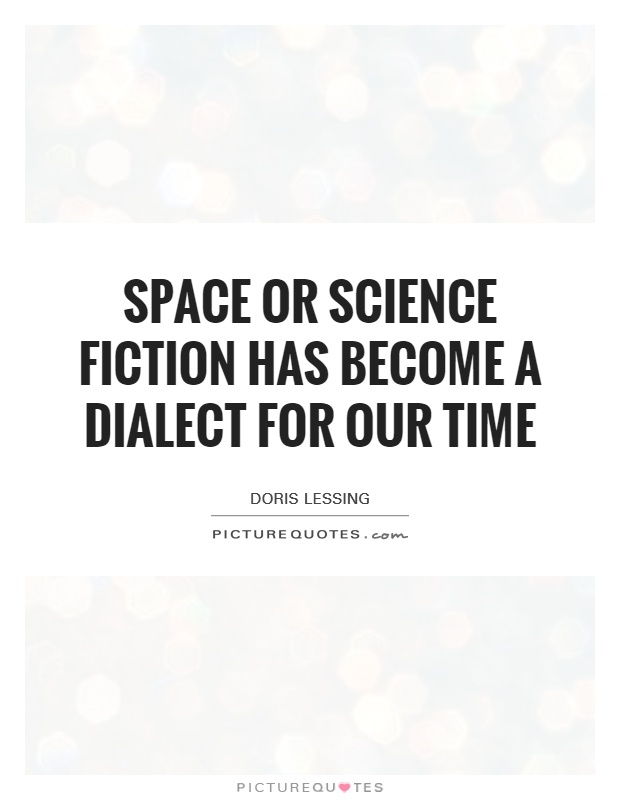Space or science fiction has become a dialect for our time

Space or science fiction has become a dialect for our time
Doris Lessing, a renowned British author, is known for her thought-provoking works that often delve into the realms of science fiction and speculative fiction. Lessing's exploration of space and science fiction in her writing has been seen as a reflection of the concerns and anxieties of our time, making it a dialect that resonates with contemporary audiences.Lessing's most famous work in the science fiction genre is perhaps her "Canopus in Argos" series, which consists of five novels that explore themes of power, politics, and human nature through the lens of intergalactic civilizations. In these novels, Lessing creates complex worlds and characters that challenge traditional notions of society and morality, offering a fresh perspective on the human condition.
One of the reasons why space and science fiction have become a dialect for our time is their ability to address pressing issues such as climate change, technological advancements, and the ethics of scientific research. Lessing's exploration of these themes in her work reflects the growing concerns of our society about the impact of human actions on the planet and the consequences of unchecked technological progress.
Furthermore, space and science fiction allow writers like Lessing to imagine alternative futures and possibilities, offering a space for critical reflection on the present. By creating worlds that are vastly different from our own, authors can challenge readers to question their assumptions and beliefs, encouraging them to think beyond the confines of their own reality.












 Friendship Quotes
Friendship Quotes Love Quotes
Love Quotes Life Quotes
Life Quotes Funny Quotes
Funny Quotes Motivational Quotes
Motivational Quotes Inspirational Quotes
Inspirational Quotes